Livestock Water Tank Heater
stevez06
13 years ago
Related Stories

GREAT HOME PROJECTSHow to Switch to a Tankless Water Heater
New project for a new year: Swap your conventional heater for an energy-saving model — and don’t be fooled by misinformation
Full Story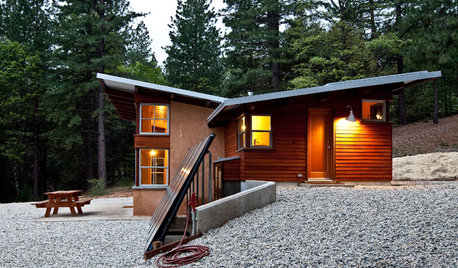
GREAT HOME PROJECTSHow to Add a Solar Water Heater
Lower energy bills without a major renovation by putting the sun to work heating your home’s water
Full Story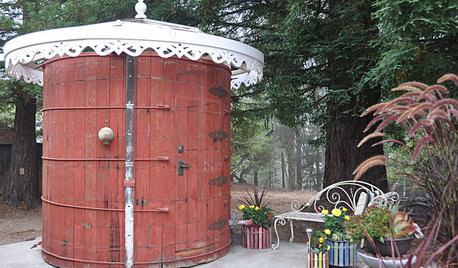
OUTBUILDINGSSee an Outdoor Bathroom Made From a Water Tank
This repurposed fixture in a California backyard is now the owners' favorite bathing spot
Full Story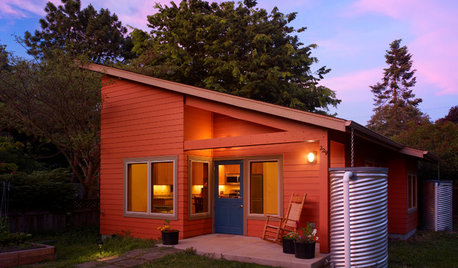
GREEN BUILDINGHow to Harvest Rainwater for Your Garden
Conserve a vital resource and save money by collecting stormwater for irrigation in a barrel or tank
Full Story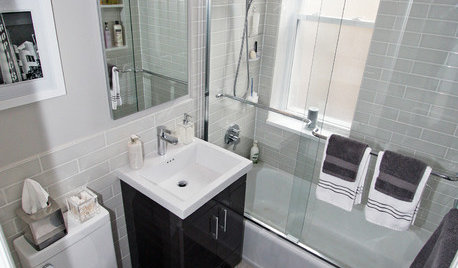
BATHROOM DESIGNWater Damage Spawns a Space-Saving Bathroom Remodel
A game of inches saved this small New York City bathroom from becoming too cramped and limited
Full Story
SAVING WATER11 Ways to Save Water at Home
Whether you live in a drought-stricken area or just want to help preserve a precious resource, here are things you can do to use less water
Full Story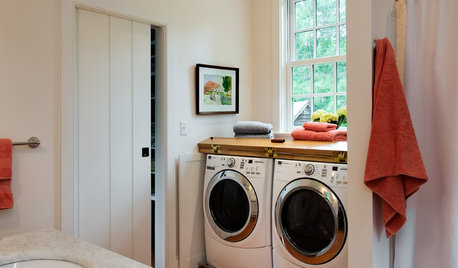
GREEN BUILDINGWater Sense for Big Savings
Keep dollars in your pocket and preserve a precious resource with these easy DIY strategies
Full Story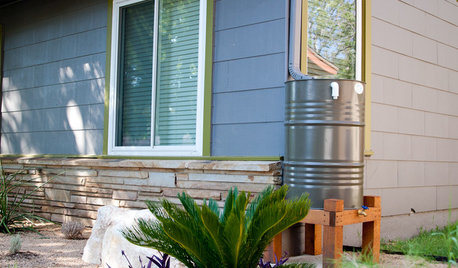
GREEN DECORATINGEasy Green: Big and Small Ways to Be More Water-Wise at Home
These 20 tips can help us all make the best use of a precious resource. How do you save water in summer?
Full Story
HEALTHY HOMEHow to Choose a Home Water Filtering System
Learn which water purification method is best for your house, from pitchers to whole-house setups
Full Story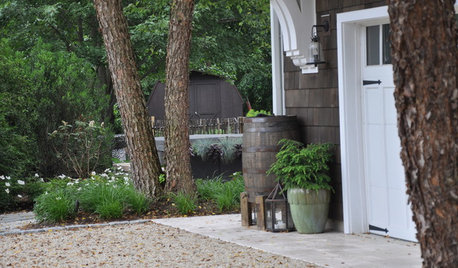
SAVING WATER6 Reasons Why You Should Save Your Rainwater Now
Collect and store during the rainy season so you’ll have water ready for irrigation when you need it
Full Story





calliope
calliope
Related Professionals
Benbrook Landscape Architects & Landscape Designers · Forest Acres Landscape Architects & Landscape Designers · Garden City Landscape Architects & Landscape Designers · Newcastle Landscape Architects & Landscape Designers · Berkeley Heights Landscape Contractors · Cambridge Landscape Contractors · Del Aire Landscape Contractors · East Haven Landscape Contractors · Haverhill Landscape Contractors · Woodbury Landscape Contractors · Downey Fence Contractors · Gardena Fence Contractors · Markham Fence Contractors · Mill Valley Fence Contractors · Brentwood Decks, Patios & Outdoor Enclosuresjonas302
oregonwoodsmoke
doninalaska
kydaylilylady
thomashton
goodhors
alecponting
Iowafarmgal